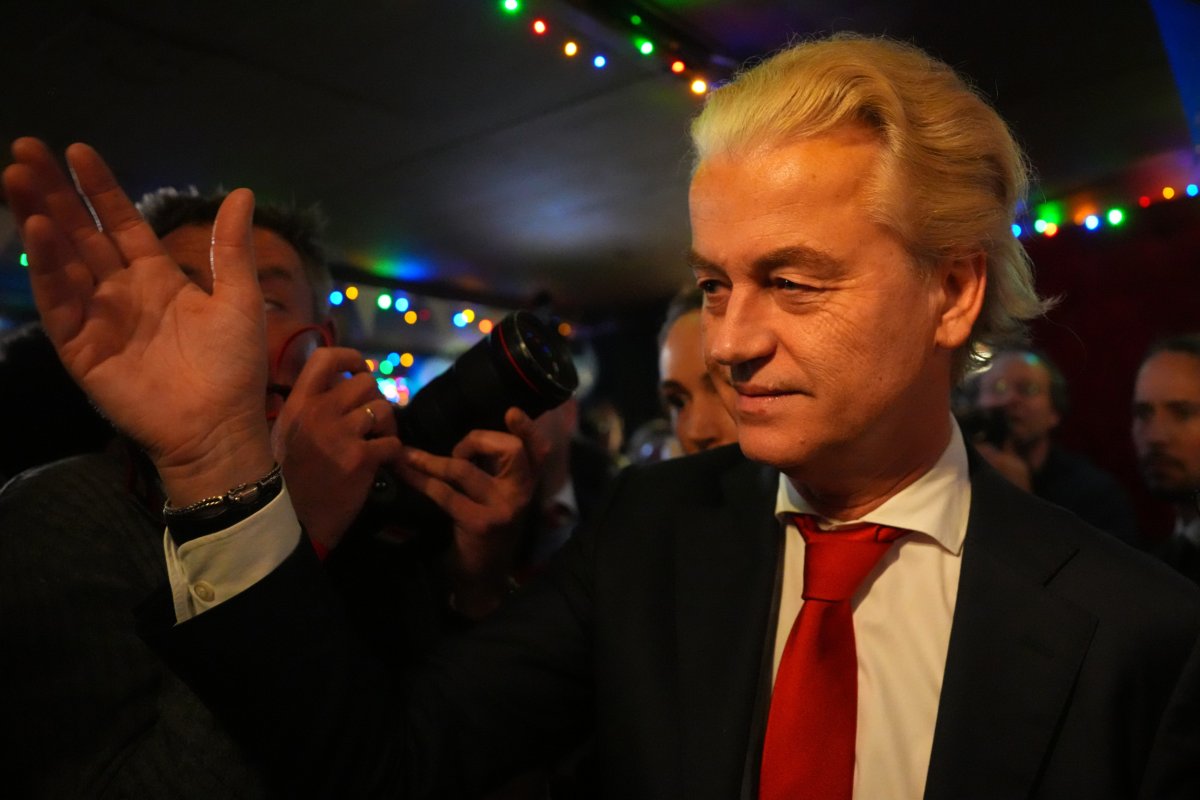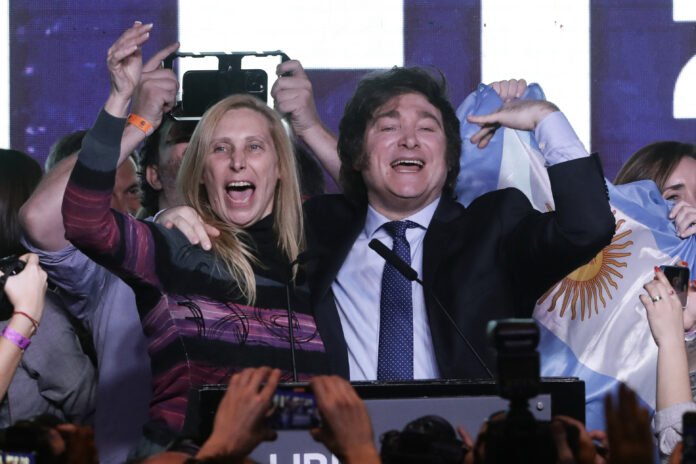One of the laziest tropes of political analysis is the impulse to link political results from different nations in order to produce a narrative about international affairs. The point of such efforts usually has little to do with events on the ground in these disparate places and everything to do with the politics of the United States.
That’s why pundits label the victors of recent elections in Argentina and The Netherlands as the “Donald Trumps” and treat their victories as calamities. It has a lot more to do with the political establishment’s alarm about the possibility of the original Trump winning a second term in the White House in 2024 than it does about what has happened in Western Europe or South America.
The main issues that drove the victories of Javier Pilei in Argentina and Geert Wilders in The Netherlands have little to do with each other. It was the hyper-inflation destroying the Argentine economy that lifted the eccentric libertarian economist and political novice Pilei to victory. Meanwhile, the opening that gave Wilders his win was the sense that Dutch society and its liberal values are being subverted by out-of-control immigration from Muslim countries; Wilders has been campaigning on this issue for decades amidst constant death threats from Islamists.
And like other supposed “Trumps”—Brazil’s Javier Bolsonaro or Hungary’s Viktor Orban—Wilders’ and Pilei’s ability to govern and to stay in office will hinge on local issues and their ability to represent more than a protest vote in a single election cycle.
Still, the loose talk about the existence of a populist wave sweeping the globe is rooted in more than liberal pearl-clutching about Trump’s leading President Joe Biden in the polls. As much as the voters in these two countries were primarily motivated by unrelated issues, the successes of both Pilei and Wilders do have something in common. They reflect a willingness on the part of voters to listen to those who are treated as dangerous outliers by the political establishments in those countries and to elect them to high office.
ALEJANDRO PAGNI/AFP via Getty Images/Getty Images
But far from that signifying a new era of fascism driven by uncouth rabble-rousing hatemongers, as the punditry class would have it, these victories actually demonstrate the awakening of voters in very different places to the idea that they need to re-evaluate the conventional wisdom that ruling elites have been peddling. Whether you call it populism or anti-globalism or, in the case of Trump, “America First,” the success of these candidates and parties is part of a necessary course correction that is happening across the board as ordinary citizens in democracies begin to pick up on the fact that the governing classes are disinterested in what concerns them.
The Dutch election, in which Wilders and his Party for Freedom won an unexpected plurality, was decided by the growing concerns across Western Europe about the impact of unlimited immigration. Wilders is routinely categorized as being on the far Right, but while he is extreme in his rhetoric about Islam and Muslims, he actually a liberal. He speaks for those who rightly understand that a society that restricts freedom in order to cater to the demands of Islamists is one that is doomed.
Others who led on this issue were either assassinated, like Pym Fortuyn and Theo Van Gogh, or driven from the country, like Ayaan Hirsi Ali. But while Wilders is damned as an Islamophobe, decades of efforts by the Dutch political establishment to ignore the way their country is changing for the worse as a result of the refusal of immigrants to assimilate have only bolstered his standing.

Carl Court/Getty Images
While the political and cultural elites may see open borders in Europe and the United States as part of their vision for a better world, the Dutch electorate has had no choice but to turn to populists like Wilders in order to try and put the brakes on the disintegration of their national identities.
Immigration isn’t the problem in Argentina. Their worry is a corrupt governing class that has presided over a failing economy for decades because of the country’s addiction to socialist ideas. The legacy of Peronism, a unique combination of a neo-fascist authoritarianism and collectivist economics with a populist base, still hangs over Argentina. Milei’s platform opposing globalism, socialism, and the “siren song of social justice” and replacing it with one based on economic freedom provides an alternative that the elites fear and long-suffering Argentine voters welcome.
Both Wilders and Milei face formidable challenges implementing their ideas and, like Trump, could well be derailed by their own inexperience in office and a concerted campaign by the establishments in their countries to ensure that their victories are transitory.
One thing they have in common is that both are sympathetic to Israel: Wilders spent time working on a moshav as a young man and Milei has contemplated conversion to Judaism. And both are pro-Israel at time when many of the globalists who oppose them are taking sides against the Jewish state in the wake of the Oct. 7 terrorist atrocities committed by the Islamists of Hamas. Far from irrelevant to the discussion about populism, the fact that they are both willing to push back at the leftist elites’ lack of interest in opposing the antisemitism that is integral to the attacks on Israel, is an indication that the talk about their victories representing a new wave of fascism has it backwards.
Yet the common theme in these elections is the way both illustrate the pushback against leftist orthodoxies and an acknowledgement of the intellectual and moral bankruptcy of the governing elites, no matter what political labels they put on themselves.
Far from these populist uprisings representing a threat to democracy, the growing support that people like Trump, Milei, and Wilders are getting shows that voters understand that a shock to the system and questioning the elite’s orthodoxies is exactly what is needed to save it.
Jonathan S. Tobin is editor-in-chief of JNS.org and a senior contributor to The Federalist. Follow him: @jonathans_tobin.
The views expressed in this article are the writer’s own.
Uncommon Knowledge
Newsweek is committed to challenging conventional wisdom and finding connections in the search for common ground.
Newsweek is committed to challenging conventional wisdom and finding connections in the search for common ground.


